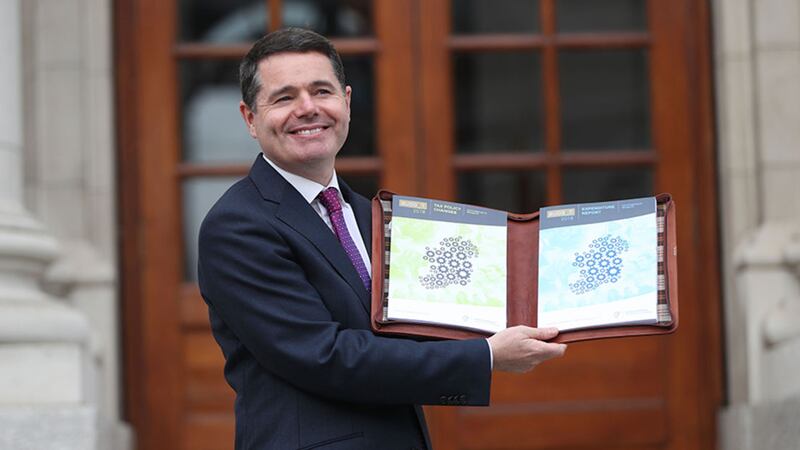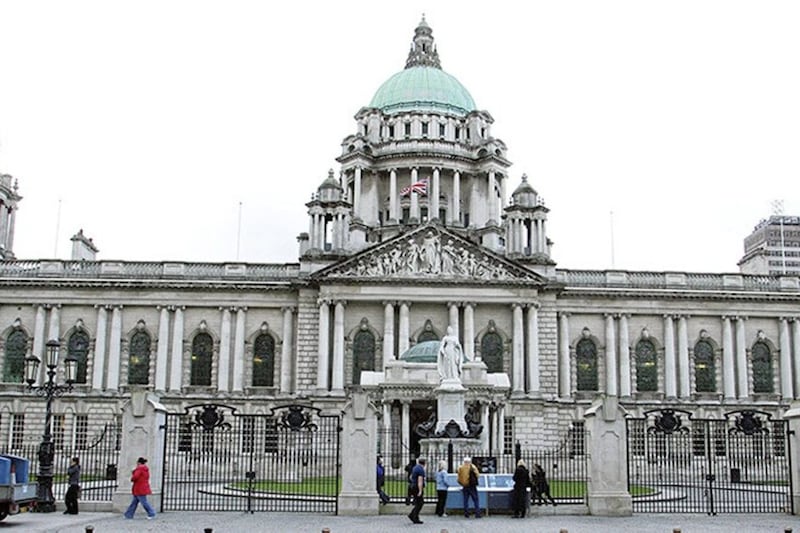Taoiseach Leo Varadkar said there would be "no fireworks" and no "big bonanza" as Budget 2018 was unveiled today.
Here are some of the key announcements:
- Spending on health to increase by €685 million (£612 million), bringing the total budget for the Health Department to €15.3 billion (£13.6 billion).
- An additional 1,800 staff across the health sector
- A reduction in prescription charges for all medical card holders under 70 from €2.50 (£2.23) to €2 (£1.78) per item. The monthly cap drops from €25 (£22.36) to €20 (£17.89).
- The excise duty on a packet of 20 cigarettes will rise by 50 cents (44p).
- Duties on alcohol go unchanged.
- There will be no changes in the price of diesel or petrol.
- A sugar tax from April 2018 will see an extra 30 cent (26p) per litre of tax on drinks with over 8g of sugar per 100ml. There will be a reduced rate of 20 cent (17p) per litre on drinks with between 5g and 8g of sugar per 100ml.
- Education spending will reach over €10 billion (£8.9 billion) in 2018. There will be 1,300 more posts in schools next year and the pupil-to-teacher ratio will reduce to 26:1.
- A €1.7 billion (£1.5 billion) investment in special education, with more than 1,000 new special needs assistants being recruited before September 2018.
- In a bid to address the homelessness crisis, €1.8 billion (£1.6 billion) will be allocated for housing. Next year, 3,800 new social homes will be built and there will also be an increase to the housing assistance scheme by €149 million (£133 million).
- An extra €500 million (£447 million) for direct building programme will see 3,000 additional new build social houses by 2021.
- Stamp duty on non-residential property is being increased to 6% from midnight on Tuesday.
- A new agency, Home Building Finance Ireland, to use Nama's experience and provide cheap loans to developers was announced.
- Mortgage interest relief for people with loans taken out in period 2004-2012 is being continued to 2020 but at just 75% the rate in 2018, 50% in 2019 and 25% in 2020.
- All weekly social welfare payments to be increased by €5 (£4.47) starting from the last week of March. An 85% Christmas bonus will be paid this year.
- Threshold for the family income supplement will rise by €10 (£8.94) per week for families with three children. €2 (£1.78) per week rise in the rate of the qualified child payment.
- The home carer tax credit is to increase by €100 (£89) this year to €1,200 (£1,073) per year.
- For the self-employed, the earned income credit will increase by €200 (£178), bringing it to €1,150 (£1,128) per year from next year.
- The threshold at which people enter the higher, 40% rate of income tax will rise from its current level of €33,800 (£30,242) by €750 (£671) for a single person to €34,550 (£30,914).
- An extra 800 gardai and 500 civilians will be recruited next year. There will be €63 million (£56 million) more for Justice to develop a "modern police force".
- VAT rate on sunbed services increases from 13.5% to 23% due to link to cancer from use of sunbeds.
- The vacant site levy, due to take effect from 2019, will increase from 3% to 7% in 2020.
- Brexit loan scheme of up to €300 million (£268 million) is being made available to SMEs.
- VAT rate for tourism and services sector is being left unchanged at 9%.
- The State's 12.5% corporation tax rate remains unchanged
- Help to buy scheme for first-time buyers, which offers an income tax refund of up to €20,000 (£17,893) for buyers of newly-built homes, is being retained.
- A Rainy Day Fund will be established in the coming year, with at least €1.5 billion (£1.34 billion) to be transferred to it from the Ireland Strategic Investment Fund.






